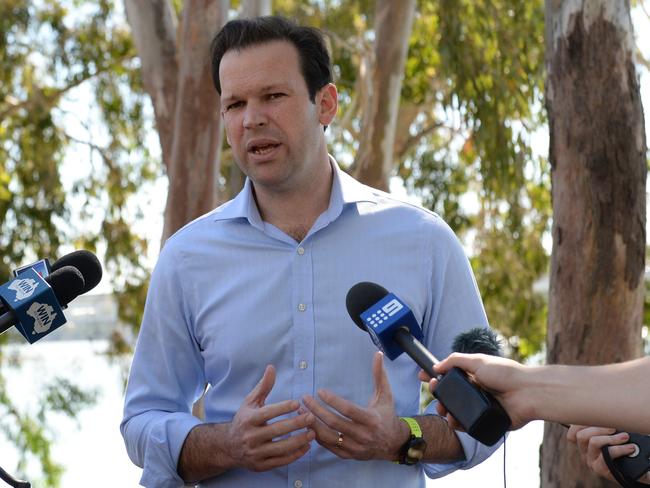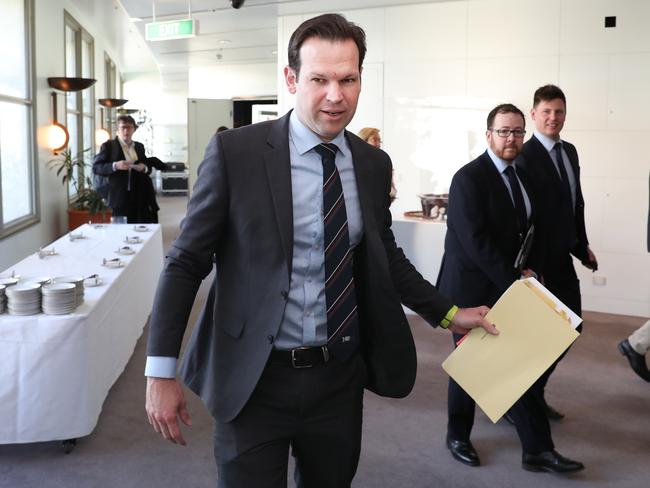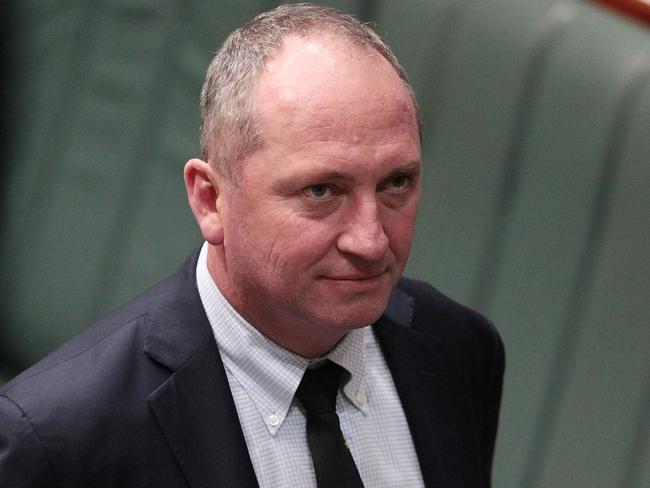Senator Matt Canavan backflips on mum defence over citizenship
REMEMBER when Senator Matt Canavan claimed his mother was responsible for his citizenship dramas? Yeah. It’s a bit more complicated than that.
BACK in July, eyes rolled when Senator Matt Canavan held a press conference claiming his mother had submitted documents to the Italian consulate to make him a surprise Italian citizen without his knowledge.
It was hard to swallow. How could a country grant citizenship to a 26-year-old without their knowledge? Wouldn’t Senator Canavan have had to sign the forms? Who blames their mum?
But a new twist discovered in the Nationals Senator’s latest submission to the High Court reveals Mama Canavan never asked Italian authorities to make her son a citizen after all.
According to the submission, made ahead of hearings next month that will determine the senator, and seven other politicians’ eligibility, Canavan’s lawyers say his mother did not seek that Senator Canavan or any of her children be registered as Italian citizens.
“Senator Canavan’s mother then registered herself as an Italian citizen living abroad, listing Senator Canavan as one of her children,” it said.
“The document Senator Canavan’s mother completed does not purport (a) to seek that any of the children be registered, or (b) to elect to take citizenship on her own behalf or on behalf on her children.”

The submission says Senator Canavan’s mother informed him and his brother they could be eligible to obtain Italian citizenship and gave him the necessary paperwork which he thought he needed to fill out if he wished to take up citizenship.
But, Senator Canavan informed his mother “that he did not wish to become an Italian citizen” and left the forms blank.
Lawyers claim that on July 18 this year, Senator Canavan’s mother told him that “in taking steps to register herself as an Italian citizen, she believed she may also have registered him”.
The latest claim is confusing and goes some way to show just how complex the dual citizenship issue can be.
In previous court appearances, Senator Canavan’s previous claims his mother signed him up as a citizen have barely been raised.
Instead, lawyers have argued he may have been an Italian citizen since 1983, a time their laws declared descendants of Italian women would be included as citizens.
He has since renounced his Italian citizenship.

Senator Canavan was among six politicians under a citizenship cloud who lodged legal arguments with the High Court on Thursday.
Lawyers for former Greens senators Larissa Waters and Scott Ludlam argued their resignations were the correct court of action, and claimed other politicians hanging on to their parliamentary positions were “wilfully blind”.
“Ignorance or wilful blindness ought not excuse a person from the constraints of the constitution that would disqualify a more diligent or more perceptive candidate,” the submission says.
“The referrals presently before the court fall into the category of ignorance or wilful blindness.”
Deputy prime minister Barnaby Joyce’s submission states that from the age of 10 he believed his father was solely an Australian citizen.
James Joyce migrated to Australia in 1947 and became an Australian citizen in 1978.
“Mere knowledge that his father had been born in New Zealand cannot be said to have constituted knowledge of circumstances that ought reasonably to have put Mr Joyce on inquiry as the possibility that he might have been a New Zealand citizen,” the submission states.

Under section 44 of the constitution, “a subject or a citizen ... of a foreign power” cannot stand for parliament.
The submission of deputy Nationals leader Fiona Nash, who has also remained on the frontbench, reveals her father was born in Scotland and her older sisters were born and lived in England before the family moved to Australia in the early 1960s.
It contended she was estranged from her father following her parents’ divorce and had not travelled to Britain. She has since renounced citizenship of Britain.
Crossbench senator Nick Xenophon’s legal team questioned why the “slenderness” of his British citizenship should cost him his seat.
He’s learned he is a British overseas citizen by descent, as his father was born in Cyprus when it was still a colony.
The matters will go before the full bench of the High Court on October 10.



